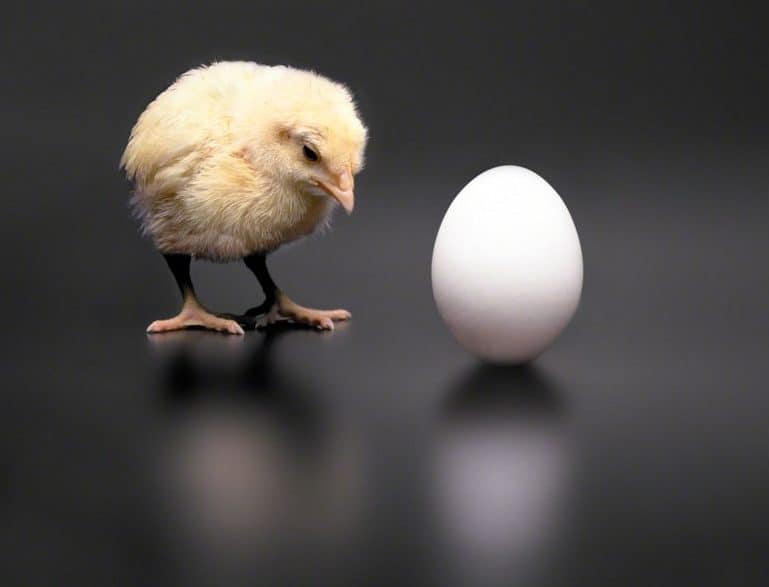Does Man Make the Sperm or Sperm Make the Man?
Which came first, the chicken or the egg? This ancient paradox filled the minds of the great philosophers Aristotle, Plutarch, Macrobius and Anaximander who all considered it a “great and weighty” problem. Not sure what else was going on back then, but even 2000 years later, it has not been satisfactorily solved.

A Newer Paradox
I don’t pretend to know the answer to the chicken-egg conundrum, but I am proposing another, less-ancient paradox in my Reproductive Symposium Lecture at Yo San University of Traditional Chinese Medicine later this month: “Does the man make the sperm or the sperm make the man?”
It Takes a Village
We know that a lot of important things happen when sperm are being made: mitosis, meiosis, recombination, genetic diversity and epigenetic marking, followed by condensation and packaging into the smallest little rocket you’ve ever seen. That’s a tricky business, the quality of which is influenced not only by genetics, but also by all sorts of lifestyle issues such as diet, obesity, disease, medications, stress, social habits and age. All these play a role during the 72 days it takes to make a sperm. And that happens within the man that makes the sperm.
Sperm as Crystal Ball
But sperm can also tell us a lot about the man that makes it. The data is pretty convincing that when compared to fertile men with normal sperm counts, infertile men with low sperm counts are more likely to:
- Have more diseases or medical disorders (i.e. carry a higher disease burden).
- Have a higher cardiovascular risk and higher hospitalization rates with age.
- Have a higher risk of getting at least 2 cancers (testicular and prostate) with age.
- Have potentially reduced longevity.
So, this suggests that sperm are a pretty good biomarker of a man’s health and wellness. In a sense, then the sperm really does make the man or at least provides us a good snapshot of what he’s all about.
Unlike the chicken-egg question, I will answer my own paradox regarding man and sperm. Right here and right now. It’s both. The man doth maketh the sperm and the sperm doth maketh the man.









